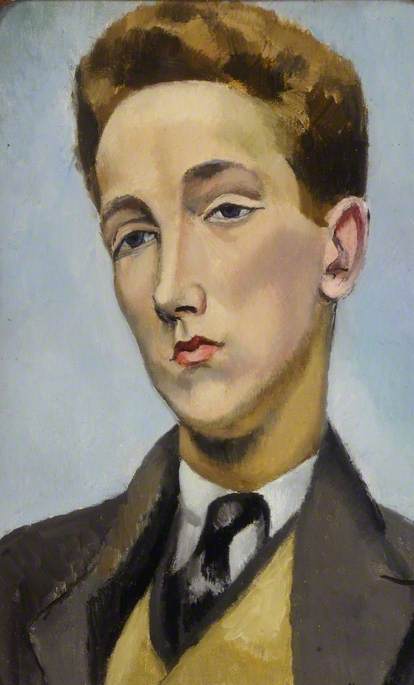

Partner Robert Medley
Queer Places:
46 Fitzroy St, Kings Cross, London W1T 5BR, Regno Unito
 Rupert Doone (born Ernest Reginald Wollfield 14 August 1903 – 4 March 1966)
was a British dancer, choreographer, theatre director, and teacher in London.[1]
Rupert Doone (born Ernest Reginald Wollfield 14 August 1903 – 4 March 1966)
was a British dancer, choreographer, theatre director, and teacher in London.[1]
Doone was born in Redditch, Worcestershire , from a Worcestershire family in reduced circumstances, but with a background that reportedly included a link with Shakespeare.
He left home at sixteen to begin his career as a dancer, and in 1925 was the last premier danseur engaged by Serge Diaghilev for the Ballets Russes - but remained with the company only until Diaghilev's death a few weeks later. He then made his way to the Festival Theatre, Cambridge, to learn acting and production, and there he became part of a play-reading group. In 1926 he met and fell in love with the painter Robert Medley, who was the co-founder of the Group Theatre.[2] They lived together until Doone's death in Northampton in 1966.
In Paris in 1926 Medley met a dancer, Rupert Doone, with whom he lived for the rest of Doone's life. Like many other English visitors, the artist Robert Medley found the atmosphere of Paris distinctly relaxed: “There were no parents to worry about, and under French law nobody had the right to interfere with our relationship.” When he and his new lover, the dancer Rupert Doone, went there in May 1926, Medley found that Doone was already well known. He had been a lover of Jean Cocteau’s, a status with which limelight came as a compulsory extra (the affair had ended in 1924).
In the spring of 1928, Rupert Doone turned down the chance to tour as Anna Pavlova’s partner; but this left him free, in July of the following year, to accept an invitation to join Serge Diaghilev’s Ballets Russes as a soloist. It was through Doone that Medley met a succession of the great homosexual ballet dancers and choreographers. When introduced to Serge Lifar, he was especially impressed by “his spectacular maquillage, the gold bangles and the varnished crimson fingernails”.
In 1932, after Robert Medley moved to London, the play-reading group evolved into the Group Theatre (London), which performed left-wing and avant-garde plays during the 1930s and again during its revival in the 1950s.
Despite his prominence in avant-garde theatre, Doone was thought to be a muddled and ineffective stage director by W. H. Auden, Stephen Spender and others, who tried to steer the Group Theatre into more effective productions and organization.
In the 1950s, Doone founded the Theatre School at Morley College, and worked there until his premature retirement as a result of multiple sclerosis.
A portrait of Doone as a young man was painted by Cedric Morris ca. 1923.
My published books: